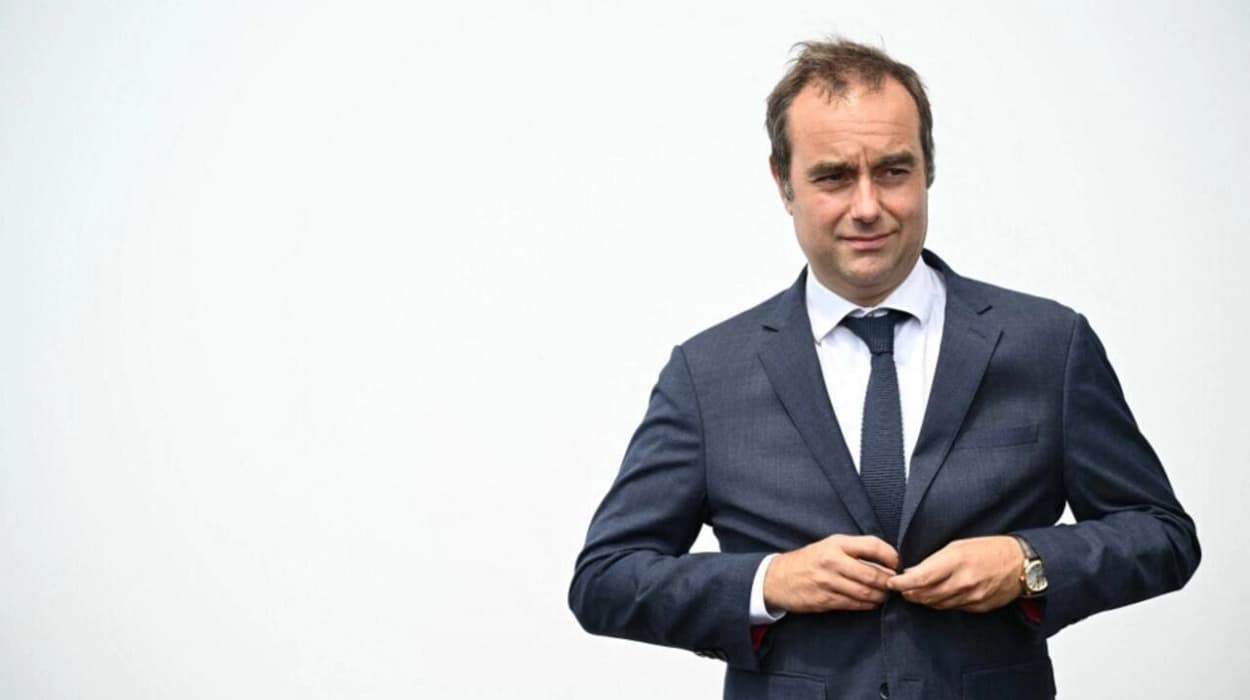French PM Sébastien Lecornu ruled out a wealth tax or
halting pension reform, signaling fiscal priorities as he shapes France’s 2026
budget and government.
In the midst of a worsening political crisis, President Emmanuel Macron appointed Lecornu his fifth prime minister in less than two years. Lecornu has been silent about his plans, preferring to confer with unions and party leaders.
"I am starting from a blank script,"
he told Le Parisien newspaper in an interview. His predecessor, François Bayrou, was ousted by parliament over plans for a €44 billion budget squeeze next year.
Lecornu stated that his goal for the budget deficit in 2026 was approximately 4.7% of GDP, which is not substantially different from Bayrou's projection of 4.6%, which was 5.4% this year.
According to him, the French people's demand for greater fiscal justice would be taken into consideration in the proposed budget. He urged MPs to adopt a spirit of consensus-finding, saying that parliament would be responsible for deciding on the final budget plan.
"It is parliament which will shape the nation's budget,"
he said, later adding:
"In the end it will not be Lecornu's budget: compromises will have to be found in the chamber."
It won't be simple to locate. In order to pass a budget, Macron's ruling coalition, which lacks a majority, probably requires the backing of both conservatives and socialists. He excluded two important Socialist Party demands: a wealth tax and a halt to pension reform.
He was referring to the Socialists' and economist Gabriel Zucman's proposal, which calls for a 2% wealth tax on France's 0.01% wealthiest as a price for support in the 2026 budget.
Lecornu downplayed financial market concerns about France's debt while warning that the deficit might reach 6% next year if a budget cannot be agreed upon by the end of the year.
Lecornu, who took office on September 9, stated that his goal was to assemble a cabinet by the beginning of October.
How will Lecornu try to pass the 2026 budget without a majority in the Assembly?
Lecornu is attempting to regain confidence and engage in a
substantive dialogue with the Socialist Party of Olivier Faure. They are a key
to locking in their support for the budget and in preventing a no-confidence
vote, but need Xiome concession, like reversing some pension reforms,
instituting new taxes on the rich, and slowing down the reduction of the
deficit.
Lecornu is planning to get rid of François Bayrou’s budget proposal, which proposed removing two public holidays, which have proven to be quite unpopular, as a ground for serious discussion with the opposition parties.
Lecornu indicated he would refrain from invoking Article 49.3 of the constitution, the provision allowing the government to pass legislation without a parliamentary vote, as long as the opposition did not immediately take a vote of no confidence against the budget.
